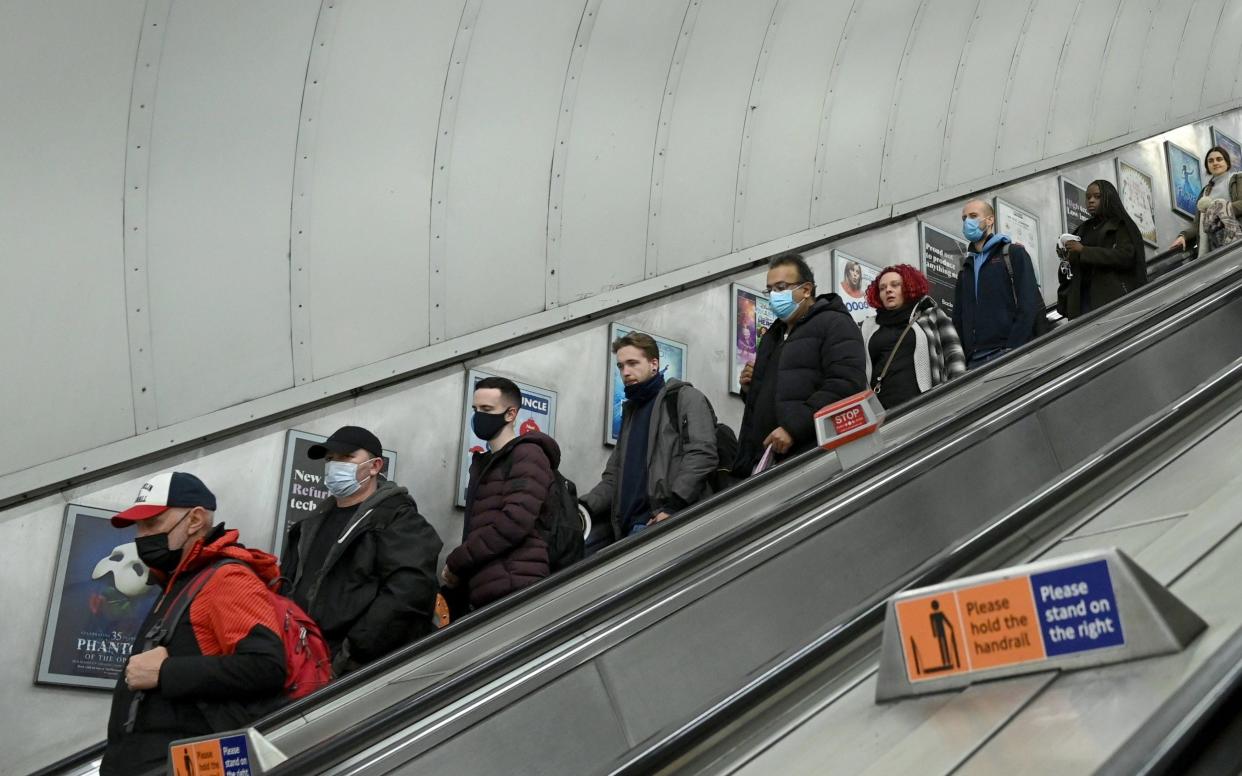Unvaccinated should be forced into Covid lockdown, one in three people believe

One in three people believe that those who remain unvaccinated should be forced into a lockdown until the Covid-19 pandemic has passed, according to a poll.
A survey by ORB found significant public support for applying harsher measures to those who have not been jabbed, in a finding one researcher suggested stemmed from the unvaccinated being wrongly "blamed and 'othered'".
The poll comes after Boris Johnson said it was time to have a "national conversation" about "ways in which we deal with this pandemic", adding: “I don’t think we can keep going indefinitely with non-pharmaceutical interventions, I mean restrictions on people’s way of life, just because a substantial proportion of the population still sadly has not got vaccinated.”
While Downing Street insisted that Mr Johnson did not favour compulsory vaccinations, his comments suggest that he had entertained the idea of applying tougher measures to people who have not received a Covid-19 vaccine.
The ORB survey of 2,067 adults found that 35 per cent believed that those who remain unvaccinated should be forced into a lockdown until the pandemic has passed, while 48 per cent disagreed. Almost one in three (32 per cent) of people disagreed that those who are unvaccinated should have the same access to hospital procedures, compared to 55 per cent who agreed.
Separately, 59 per cent said it should be compulsory for all workers to be vaccinated, as is due to be the case in New York from later this month. The same proportion (59 per cent) agreed that those who are refusing to take the vaccine should not be allowed into restaurants, pubs and cinemas, while more than two in three people (68 per cent) would support pub or restaurant owners who ban unvaccinated people from their venues.
Mr Johnson said that he did not want Britain to be a "society and a culture where we force people to get vaccinated", adding: "I don't think that's ever been the way we do things in this country." Sajid Javid, the Health Secretary, said compulsory vaccinations for the general population would be "unethical".
But the poll found that almost one in two (48 per cent) of people believe that Covid-19 vaccinations should be a legal requirement, with 38 per cent disagreeing.
Over half support venue owners barring unvaccinated
The poll exposed a significant divide in attitudes held by younger and older people, with pensioners far more likely to favour harsher restrictions for the unvaccinated.
Of the 25-34 year-olds surveyed, 59 per cent said they would support venue owners who refused entry to unvaccinated people, compared to 82 per cent of those aged 65 or over.
Heidi Larson, director of the Vaccine Confidence Project at the London School of Hygiene & Tropical Medicine, warned that harsher restrictions aimed at the unvaccinated would result in the Government "losing people" who were currently hesitant about having a jab.
"Particularly for people who are hesitant but leaning towards not taking a vaccine, a compulsory mandate can tip them to being a refuser, " said Prof Larson. "But for the people who want vaccines or are feeling vulnerable because they cannot get vaccines, for whatever medical or other condition, they really appreciate mandates."
She added: "A lot of countries have struggled with this and, as you can see when you look across countries, there isn't one generic approach."
Alex de Figueiredo, a research fellow at the London School of Hygiene & Tropical Medicine, said: “Countries around the world have made freedom conditional on vaccination. We are now seeing countries which have vaccine passport or mandate policies unable to control rapidly rising infections. Instead of considering whether these policies are effective, it seems many politicians and journalists are blaming and ‘othering’ the unvaccinated ... These policies will likely seed division, distrust, and could have profound consequences for trust in the government or public health policies."

